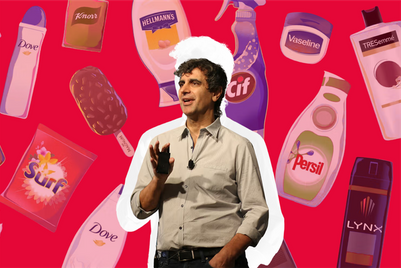
Unilever and Nestlé are the first brand owners to commit to paying a fractional green offset levy of the cost to produce an ad.
Several agencies have already committed to collecting the levy, including Adam & Eve/DDB, Havas UK, Havas Studios and Mullen Lowe Group (representing IPG). Publicis Groupe UK’s agencies are also supporting the collection.
The funds will go to UK Advertising Association offshoot AdGreen, which is set to launch a carbon calculator in September. The tool is designed to enable ad agencies, production and service companies to collaboratively input information about activities undertaken to create an ad campaign, allowing teams to consistently measure the carbon footprint of production.
It is based on the British Academy of Film and Television Arts' carbon calculator, called Albert, developed in 2011 for the film and TV industry.
Jo Coombes, AdGreen’s project director, said: “The calculator will show how much carbon is attributed to what type of activity, which supplier has generated the most carbon in terms of the footprint for that campaign, and it will give brands and holding companies visibility of carbon footprints.”
The tool is a key feature of Ad Net Zero, backed by adland giants including Adam & Eve/DDB, Havas, Mullen Lowe, Sky, Unilever and WPP, which calls on the industry to reduce its carbon impact to net zero by 2030.
“To achieve net-zero emissions we need to address every aspect of our carbon footprint, including advertising production,” Sebastian Munden, Unilever UK & Ireland’s executive vice-president and general manager, and Ad Net Zero chair, said.
"AdGreen will be a vital step towards that and will help all advertisers, big or small, to think about and manage the carbon footprint of the actual production and shooting of adverts and get to net-zero in a targeted and measurable way.”
Free at the point of use, the voluntary levy charged to advertisers will contribute to the cost of resources, tools and training delivered by AdGreen. By working collaboratively, agencies and brands can track and understand their carbon impact as part of their responsibilities towards reaching net zero by 2030.
Anthony Falco, chief production officer at Adam & Eve/DDB, commented: “By committing to collect the levy payments from participating clients, we’re playing our part in enabling AdGreen to continue providing their tools, resources and training free at the point of use. Many of our team have already taken AdGreen’s training and we’re looking forward to using the carbon calculator and the extra information it will give us when it is launched later this year.”
Agencies and production partners will need to register their intent to collect levy payments by signing up at the AdGreen website. Similarly, advertisers keen to support can register their intent to pay the levy.




.jpg&h=334&w=500&q=100&v=20250320&c=1)
.jpg&h=334&w=500&q=100&v=20250320&c=1)
.jpeg&h=334&w=500&q=100&v=20250320&c=1)
.jpg&h=334&w=500&q=100&v=20250320&c=1)
.jpg&h=334&w=500&q=100&v=20250320&c=1)
.jpg&h=334&w=500&q=100&v=20250320&c=1)








.jpg&h=268&w=401&q=100&v=20250320&c=1)
.jpg&h=268&w=401&q=100&v=20250320&c=1)